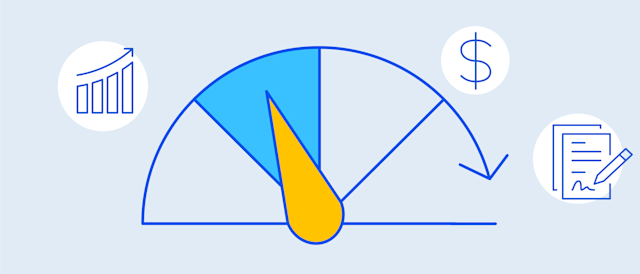4 Ways to Get Smart About Credit

Summary
There are some fundamental topics to discuss that could help increase your credit intelligence. Here are four ways to get smart about credit.
In this article:
Whether you’re trying to get credit as a young adult for the first time or keeping tabs on a long payment history, being smart about credit can improve your scores and open up the door to more financial opportunities and lower interest rates. Our tips will help you get savvy about your credit:
1. Get familiar with your credit reports
Do you know how to check your credit score? Your first step to understanding credit is finding out what’s on your credit reports. According to federal law, you can receive a free report from all three consumer credit reporting companies (Equifax, Experian and TransUnion) every 12 months.1 Check out these helpful articles about how to read your reports:
- How to read your Equifax credit report
- Understanding your Experian credit report
- Transunion: How to read your credit report
2. Understand what affects your credit score
If you want to understand your credit score, you’ll need to know how reporting agencies create them. Some common factors include:
Payment history. If you have a history of paying your bills on time, it could positively affect your score.
Credit utilization rate. This calculation is a percentage of your total credit limit vs. the total of all your balances. Most financial experts suggest a rate below 30-40% positively influences your credit score.2
Length of credit history. The longer your positive credit history, the better it can be for your score.3
Credit mix. The variety of credit you use, or credit mix, may also impact your score. The more types of accounts you have in good standing, the better it could reflect on your credit score.4
Hard inquiries. When you apply for a new line of credit, lenders usually ask to review your credit report. If they do, you could receive a hard inquiry. A high volume of hard credit inquiries can negatively impact your credit score. However, the impact of credit inquiries fades over time and completely drops off your report after approximately two years.5
3. Talk to your creditors
If you suddenly find yourself unable to keep up with your payments, contact your creditors right away. Some lenders are willing to work with you to find a new payment arrangement.
Here are some tips to effectively communicate with a creditor:
Clearly explain your issue. Whether you’ve lost your job, suffered a death in the family or have unexpected medical bills, be clear about your circumstances.
Propose a solution. Prepare and discuss some potential solutions. This helps show creditors you’ve put serious thought into how you’re planning on repaying your debt.
Ask questions. As you start to reach an agreement, ask questions if you feel unsure about any of the details.
Get any new arrangements in writing. If you settle on new arrangements, request a copy of the terms in writing.
4. Create a plan to improve your credit score
There isn’t a “one plan fits all” when it comes to improving your credit score or building your credit. These tips to improve your credit score may help you create a plan that works for you:
Pay all monthly bills on time. If your bill payments are rolling in a little late, it can negatively impact your credit. Check out these four tips to help pay your monthly bills on time.
Identify and change bad habits. Bad habits can be hard to break, but you can start small. Try starting with these three credit habits to consider changing.
Learn credit common terms. Understanding credit scores starts with knowing the lingo. Here are 10 common credit terms that will help get you in-the-know.
Talk to family or friends with good personal finances. If you know someone with no credit card debt, ask if they’re willing to share some personal tips.
Stay in control
Your credit report can impact your life in a lot of ways. If you understand and monitor your credit activity, spending and payment history, you’ll stay on the right track for your financial future.
1. https://www.annualcreditreport.com/yourRights.action
2. https://www.investopedia.com/ask/answers/040715/how-does-your-checking-account-affect-your-credit-score.asp
3. https://www.nerdwallet.com/blog/finance/credit-age-length-of-credit-history
4. https://www.credit.com/credit-reports/tips-for-improving-your-credit-types-of-accounts/
5. https://www.experian.com/blogs/ask-experian/credit-education/score-basics/what-affects-your-credit-scores/
*This article has been updated from a previous posting on October 16, 2019. Nicole DeMarco contributed.
This article is for general education and informational purposes, without any express or implied warranty of any kind, including warranties of accuracy, completeness, or fitness for any purpose and is not intended to be and does not constitute financial, legal, tax, or any other advice. Parties (other than sponsored partners of OneMain Financial (OMF)) referenced in the article are not sponsors of, do not endorse, and are not otherwise affiliated with OMF.



